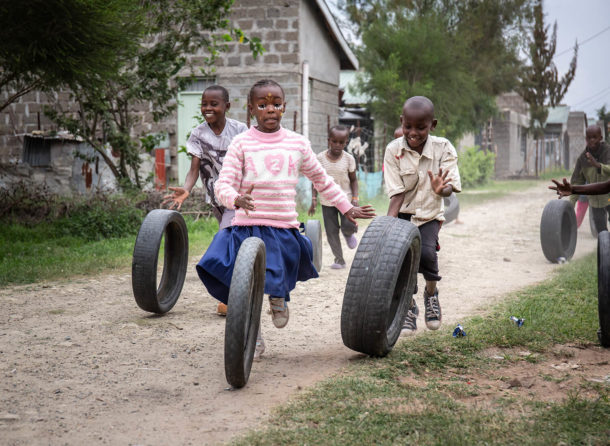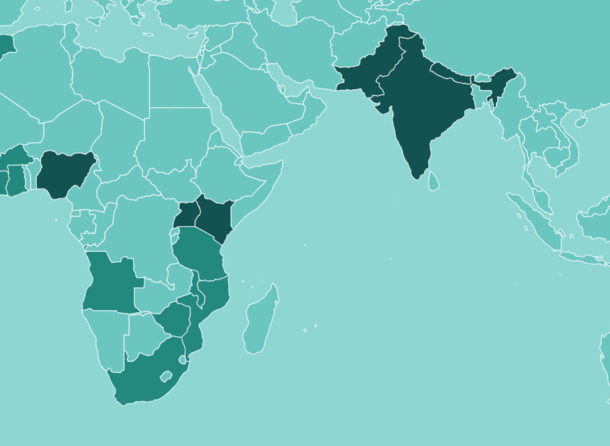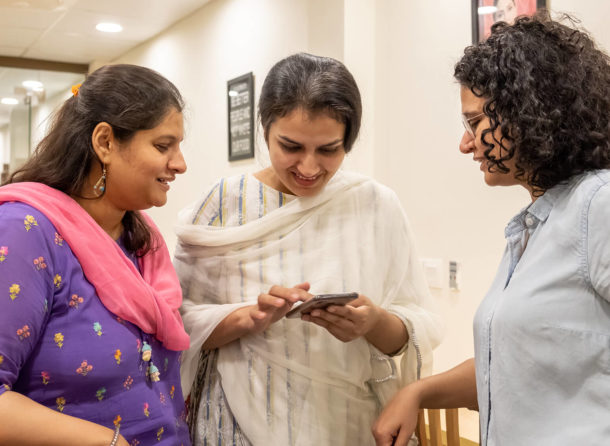
Building a Better Tomorrow: Reall’s Insights from the Buildings and Climate Global Forum
As March celebrates women’s achievements, our Director of Programmes and Business Development, Mewahib Mohamed and Climate and Green Buildings Lead, Naa Ayeleysa Quaynor-Mettle, recently attended the Buildings and Climate Global Forum (BCGF) in Paris. This was organised by the French Government with support from the Global Alliance for Buildings and Construction and the United Nations Environment Programme (UNEP).
The forum focused on the environmental impact of the buildings and construction sector, underlining their crucial contribution to reaching climate objectives. During the forum, high-level stakeholders including ministers from across the world, convened to accelerate the drive towards decarbonisation and climate resilience post-COP28.
The forum concluded on Friday, the 8th of March with the launch of the Declaration de Chaillot, which was signed by 70 countries. This declaration builds upon the overarching Buildings Breakthrough agenda introduced at COP28 in December 2023, providing a clear and targeted ministerial directive to address the climate’s impact on buildings.
Reall at the Buildings and Climate Global Forum
Reall co-organised two events with UN-Habitat, BuildChange, Habitat for Humanity, and the Cities Alliance on affordable and resilient housing in rapidly growing regions. In the presence of stakeholders from across the globe, our Climate and Green Buildings Lead, Naa Ayeleysa Quaynor-Mettle steered the conversation on strategies to accelerate the deployment of finance for such housing projects. Key recommendations included:
- Embracing holistic solutions for urban development and expansion.
- Strengthening partnerships and collaborations across various sectors.
- Establishing enabling environments through accessible finance and supportive policies to scale up resilient affordable housing projects.
- Leveraging data to shed light on urban poverty, enhance visibility, and establish bankability in alignment with financial institutions’ frameworks.
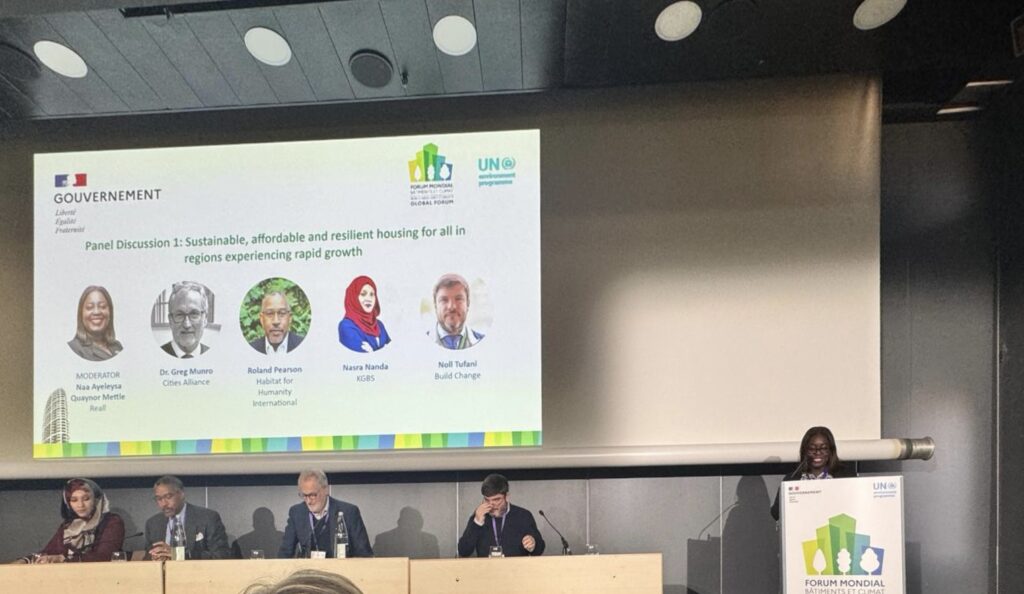
The Institutional Investors Group on Climate Change (IIGCC) and Resallience led the second event, which focused on climate adaption and preventative methods of working on the resilience of buildings to reduce the costs of insurance and to make buildings more insurable. During the panel discussion, Naa Ayeleysa Quaynor-Mettle showcased Reall’s ongoing initiative, the Green Affordable Housing Finance instrument (GAHF), a model for expanding resilient and adaptive financing for affordable housing projects. GAHF collaborates with various stakeholders to develop the housing ecosystem and leverages the value of guarantees to derisk lending and unlock local self-sustaining financing to address demand and supply-side housing challenges.
The pivotal themes discussed during the panel session, notably the necessity for context-specific solutions, the need to align policies to adapt to housing, and a call to action for deeper collaboration from international forums like the G20, G7, and UNFCCC, were mirrored in the Declaration de Chaillot. This highlighted the testament to an engaging and insightful panel featuring esteemed global experts in the housing sector!
Reall’s Director for Programmes and Business Development, Mewahib Mohamed contributed to several insightful sessions during the forum. This included participation at a closed CEO roundtable discussion which gathered business leaders from across the housing and construction value chains to ensure diverse perspectives were considered. The session highlighted the role of the private sector in accelerating the decarbonisation of the built environment and the need for strong collaborations between the various actors. The group breakout format ably facilitated by pre-selected table leads provided a wonderful opportunity to share knowledge and experience, exchange ideas, and networking amongst participants.
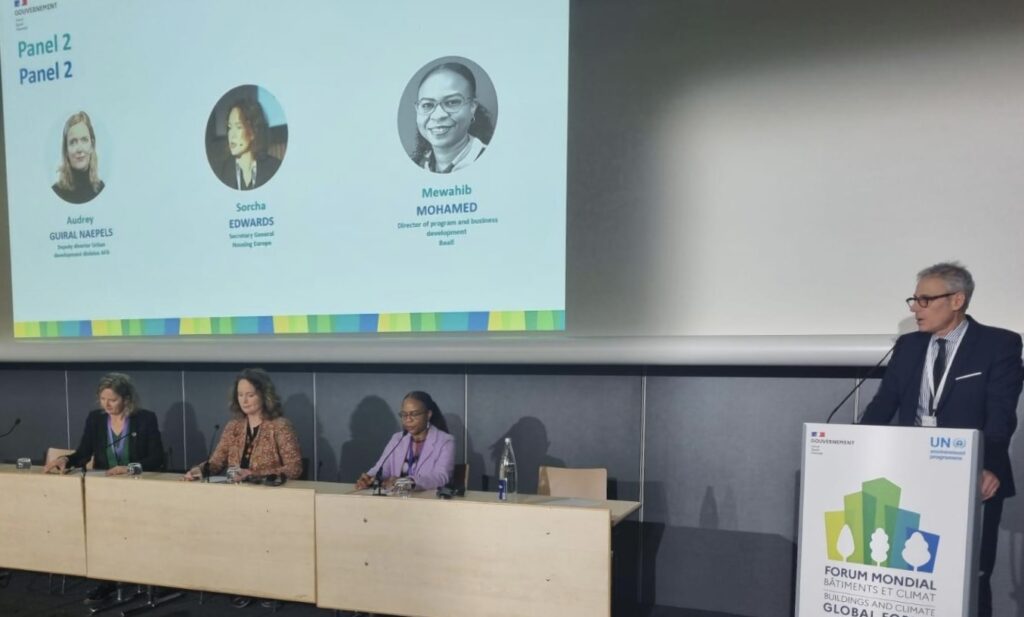
Additionally, Mewahib took part in a collaborative breakfast workshop organised by the Sustainable Construction Observatory at Saint Gobain. During the workshop, participants addressed five key emerging themes, including finance and risk coverage, adaptation and resilience, inclusion and affordability, people and skills, and global and local considerations.
As part of the group addressing the finance and risk coverage, Mewahib emphasised the critical need to address the realities in the Global South, where access to long-term finance is limited. And as a result, most buildings are expected to remain stay self-built because of the lack of access to finance.
Moreover, Mewahib represented Reall at the high-level dialogue on housing which brought together ministers, city leaders, development finance institutions and non-state actors to discuss making resilient, low-carbon housing affordable and accessible to all. Her contribution underscored the role of innovative blended financing instruments in catalysing green affordable housing ecosystems. She called for action from development finance institutions to scale up their investments and support incentives as crucial elements in this regard.
 Our way forward
Our way forward
We are committed to forging deeper collaborations with peer organisations to create pathways to develop stronger and better functioning housing markets. We will leverage our pilot initiatives to demonstrate the value of innovative financing mechanisms such as guarantees to derisk lending and unlock financing to green and resilient affordable housing projects across emerging market cities. This vision is closely aligned with the targets set out in the Sharm el Sheik Adaptation from COP27, the Buildings Breakthrough launched at COP28 and finally the tenets outlined in the Declaration de Chaillot, launched at the inaugural Buildings and Climate Global Forum in Paris 2024.
Read more stories
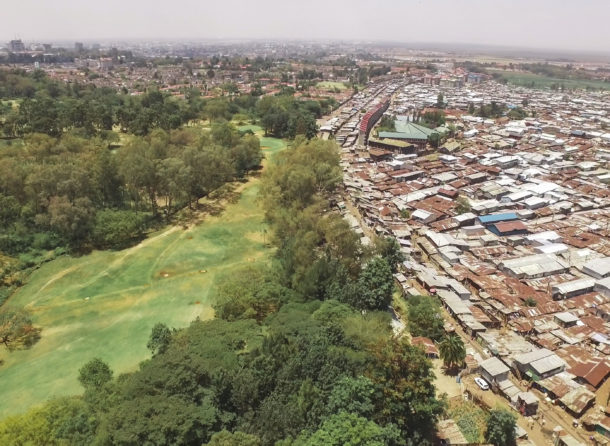
How Affordable Homes could help solve the global climate crisis
The United Nations climate summit, COP25, starts today in the Spanish city of Madrid where climate leaders will push to scale up action and investments into rapidly reducing global greenhouse gas emissions and support broader sustainable development agendas, specifically addressing …
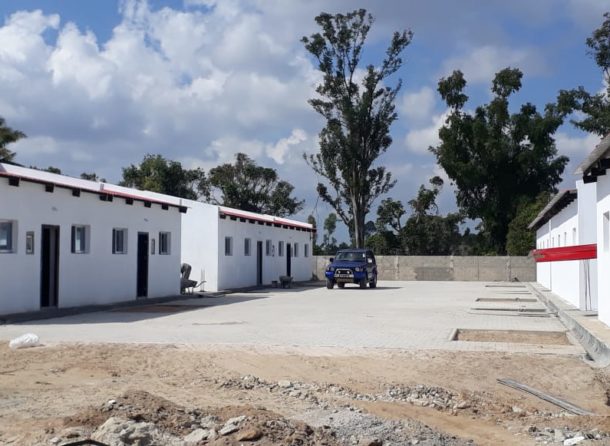
Celebrating affordable housing in Beira
The ribbon-cutting ceremony was attended by Reall’s Director of Investment and Operations Patrick Domingos-Tembwa, Mayor of Beira Daviz Simango and Casa Real Director Marie Odile. The celebration was particularly poignant as these homes managed to withstand the destruction of Cyclone…
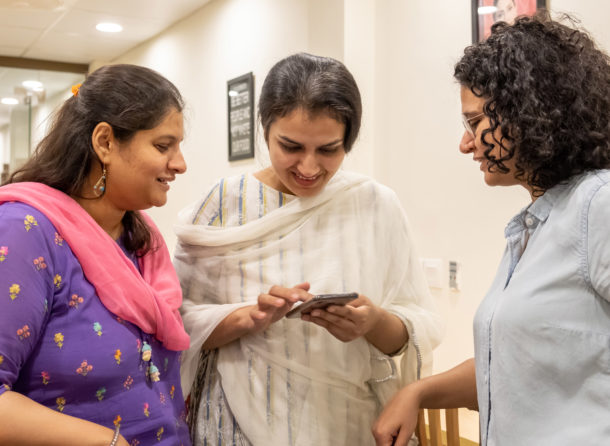
New Partnership: Syntellect
Reall are delighted to be partnering with India-based technology firm, Syntellect. Syntellect are committed to giving unbanked people the opportunity to access mortgage finance across Africa and Asia. Syntellenct has created RightProfile, a customer profiling platform designed to help lenders …
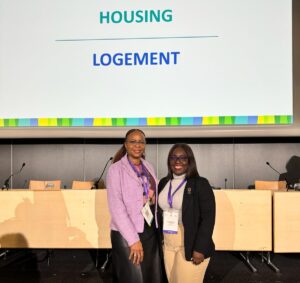 Our way forward
Our way forward 